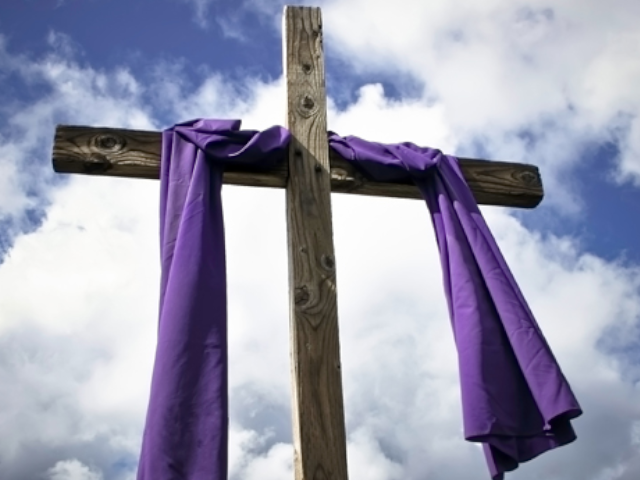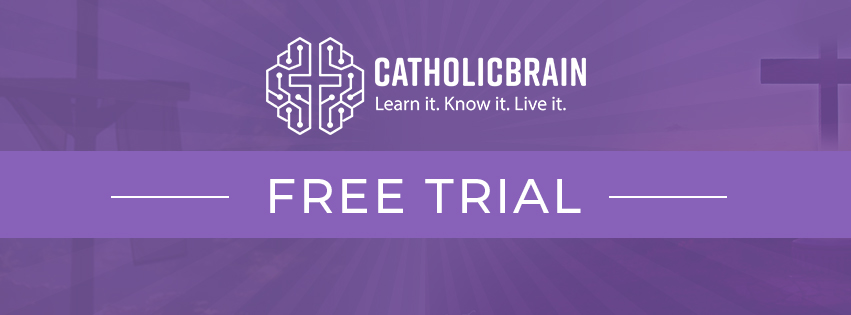Journeying through Lent
Journeying through Lent
The Catholic Church’s liturgical calendar is one of the treasures of our Faith. Through the Church’s liturgical year, we experience the ebbs and flows of life, seasons of feasting celebration, and seasons of fasting penitence.
We find ourselves a few weeks into Lent. It is not too late to consider how we will make this Lent the spiritual preparation for celebrating the Paschal Mystery that it is meant to be. Perhaps what you wanted to do for Lent is not working out for you. Don’t worry, pivot, find something new and dive in with a fresh start. Lent is a forty-day period during which we take stock and refocus. What in our lives do we need to let go of; what do we need to embrace, so that on Easter Sunday we are closer to God and more conformed to His Will than we were on Ash Wednesday?
There are many traditional and powerful practices – fasting, prayer, almsgiving – but each person’s Lent will be unique, a call from God to grow in whatever way we need to. For those of us with children in our care – parents, teachers, religious educators, youth ministers, etc., there is an additional challenge: how can we help this Lent benefit the young people we are trying to lead in faith?
A Tool for Your Lenten Arsenal
At CatholicBrain, we share that concern, and we would like to offer a tool to enhance this Lent. For the holy season of Lent, we have a special daily Lent program to help lead young people (and not so young people) on the journey to Easter.
CatholicBrain’s Lent program follows Jesus through the Church’s daily Gospel readings. Each day includes an excerpt from Scripture that walks children through the life of Christ from birth, to his death and Resurrection. Each reading is adapted to child-friendly language and includes a video. followed by a reflection, aimed primarily at young people, but relevant for people of any age.
Each day of Lent CatholicBrain also provides a Lenten reflection video that provides ways for youth to be active participants in their Faith during this Lenten season. Following the reflection is a journaling prompt. Because many of the Gospel readings are the same from year to year, students who participated last year can compare this year’s journal with last year’s, to see how they are maturing spiritually.
Next are the challenge and daily activity. The daily challenge is an opportunity for children, and adults, to put the day’s lesson into concrete action in their lives. As our spirits grow, our actions should change. The daily challenge helps our spiritual growth translate into healthy habits (virtues). The daily activity is meant for younger children who are too young to tackle the challenge, and maybe too young for the journal as well. It is an activity on Catholic Brain – a game, video, coloring page, etc., that reinforces the Gospel message of the day.
How Can We Use It?
Lent should feel different than the rest of the year. We should experience Lent in a way that we could not possibly mistake it for another season. That is why, ideally, Catholic Brain’s Lent program should be a part of the morning. The day begins differently than it does during Ordinary Time, and the day’s message has a chance to stay with us throughout the day and take root.
For families and homeschoolers, this is simple. As the day begins, simply make the program a part of your morning routine. And perhaps the daily challenge can be something that you work on together as a family.
For Catholic school teachers, it can be very similar. Catholic Brain’s Lent program does not need to take up much time every day, so it can be a simple addition to your class’s morning. Students can keep their journals in class, and by the end of the season, they will have become a wonderful Lenten project. Reach out to parents, as well, so they can encourage students to continue the program at home on weekends and other non-school days.
For parish religious education teachers, using the program may require more creativity. Because you likely only see your students once a week, participating consistently means enlisting commitment from parents. Many students may not engage the program on a daily basis, but perhaps one of the week’s lessons will relate in a special way with what you are doing in class, and can become one of your activities. Maybe have students commit to doing one challenge between classes, and come prepared to discuss their experience the following session.
However you want to implement the program, it will provide a unique and spiritual experience so this Lent can be an opportunity for you and your students to dive more deeply into your Faith.
Not yet a subscriber? Sign up today for a free trial or schedule a demo at www.catholicbrain.com




